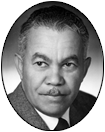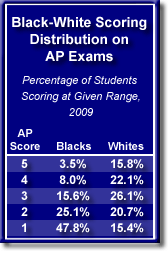Education Department to Step Up Civil Rights Enforcement
 Speaking in Selma, Alabama, on the 45th anniversary of the “Bloody Sunday” voting rights march, U.S. Secretary of Education Arne Duncan announced a major new effort to enforce the nation’s civil rights laws as they pertain to education. Speaking in Selma, Alabama, on the 45th anniversary of the “Bloody Sunday” voting rights march, U.S. Secretary of Education Arne Duncan announced a major new effort to enforce the nation’s civil rights laws as they pertain to education.
Duncan announced that letters will be sent to most of the nation’s K-12 school districts and thousands of colleges and universities across the country outlining their responsibilities under the nation’s civil rights laws. In addition, before the end of the year the Education Department will begin compliance reviews in 38 school districts to determine if there is racial or gender discrimination in areas such as school discipline, assignments to special education, expulsion rates, or access to honors programs. Similar compliance reviews will be conducted at a minimum of six colleges or universities.
How the Gender Gap in African-American Educational Attainment Impacts Household Income
 A new report from the Pew Research Center finds that black women ages 30 to 44 with a college education provided 47 percent of their household’s income in 2007. College-educated women as a whole provided 36 percent of their total household income. A new report from the Pew Research Center finds that black women ages 30 to 44 with a college education provided 47 percent of their household’s income in 2007. College-educated women as a whole provided 36 percent of their total household income.
The study shows that in 2007 married women of all races between the ages of 30 and 44 had become the majority income earner in 22 percent of all marriages. This was up from 4 percent in 1970.
When we break the data down by race and education we find that 44 percent of black women with a college degree earned more than their husband. This is more than double the rate for college-educated women in this age group as a whole.

LOYOLA UNIVERSITY NEW ORLEANS

Dean of the College of Law
Loyola University New Orleans invites nominations and applications for Dean of the College of Law. The Dean is the chief executive and intellectual leader of the college, reporting directly to the Provost. The Dean works collaboratively to shape the college’s identity and to implement its academic goals.
Candidates should have excellent communication, administrative, and interpersonal skills along with a clear understanding of Loyola’s academic mission and its scholarly, teaching, service, and shared governance processes. Qualifications of the ideal candidate include a record demonstrating a distinguished academic or professional career in law, significant experience in legal education, success in major gifts fundraising, and achievements appropriate to a tenured full professor.
The University and the College of Law
Founded by the Jesuits, Loyola University New Orleans is a selective university, enrolling 5,500 students in five colleges. Established in 1914, the College of Law’s mission is to educate future lawyers to be skilled advocates and sensitive counselors-at-law committed to ethical norms in pursuit of dignity for all. The college offers both civil and common law curricula to 850 students in full-time and part-time programs.
Applications and Nominations
Nominations and applications are invited. Applicants should provide a letter outlining qualifications, curriculum vitae, and four references with phone numbers and e-mail addresses. Send to: Prof. P. Michael Whipple, Chair of Dean Search Committee, College of Law, Loyola University New Orleans, 7214 St.Charles Ave., New Orleans, LA 70118 or by e-mail to pmwhippl@loyno.edu. Confidential inquiries may go to Stephen Peeps, via Stephen@mfpsearch.com. For full consideration, materials should be received by April 9. The position is available August 1, 2010.
Loyola University New Orleans seeks excellence through diversity in its students, faculty, and staff; applications from underrepresented groups are actively encouraged.

Catholic College in Wisconsin Aims to Boost Student Racial Diversity
 Edgewood College in Madison, Wisconsin, is a small, liberal arts institution founded in 1927 by the Dominican Sisters of Sinsinawa. Like many Catholic colleges, historically, the institution has been predominantly white. In 2000 the college made a commitment to increase racial diversity. That year it held a minority recruitment fair, but only one student showed up. Edgewood College in Madison, Wisconsin, is a small, liberal arts institution founded in 1927 by the Dominican Sisters of Sinsinawa. Like many Catholic colleges, historically, the institution has been predominantly white. In 2000 the college made a commitment to increase racial diversity. That year it held a minority recruitment fair, but only one student showed up.
But the college did not give up. It increased its recruitment efforts at high schools with large minority populations and instituted a Community Scholars program that offers full-tuition scholarships to local low-income students. Since 2000 the college has achieved some success in boosting minority enrollments. The number of black students has increased from 29 in 2000 to 85 today, a rise of nearly 200 percent. Blacks now make up slightly over 3 percent of the student body. The number of Hispanic students has increased from 27 in 1980 to 95 today. The retention rate — those freshmen who enroll as sophomores the next year — is higher for minority students than it is for white students.
Edward Waters College Goes Top Secret
 Edward Waters College, the historically black educational institution in Jacksonville, Florida, has instituted a strict new confidentiality policy that restricts all employees, including faculty, from disseminating any information about the college without permission. Under the policy, employees can face fines of up to $5,000. Under the new regulations, employee records, policy documents, internal memos — even classroom materials — cannot be disseminated to the press or the public without the permission of the administration. Edward Waters College, the historically black educational institution in Jacksonville, Florida, has instituted a strict new confidentiality policy that restricts all employees, including faculty, from disseminating any information about the college without permission. Under the policy, employees can face fines of up to $5,000. Under the new regulations, employee records, policy documents, internal memos — even classroom materials — cannot be disseminated to the press or the public without the permission of the administration.
Employees must sign a contract that stipulates that they are bound to the confidentiality policy even when they are no longer employed by the college. The administration stated that the policy was implemented to prevent former disgruntled employees from attempting to harm the college’s reputation.
University of Memphis Is Building an Education Archive on the Career of African-American Architect Paul Revere Williams
The University of Memphis has established a new research project and exhibition to honor the work of architect Paul Revere Williams. Williams died in 1980 and much of his work was lost in a fire during the 1992 Los Angeles riot. The new effort is an attempt to compile educational and other resources to document Williams’ contributions to the field of architecture.
 Born in 1894, Paul Revere Williams was orphaned at the age of 3. As a young boy he decided he wanted to design homes and buildings. But because there were almost no opportunities for an African-American architect, his high school teachers tried to discourage his pursuit of architecture. But Williams persisted in his dream and studied at the Beaux Arts Institute of Design in New York City and at the University of Southern California. Born in 1894, Paul Revere Williams was orphaned at the age of 3. As a young boy he decided he wanted to design homes and buildings. But because there were almost no opportunities for an African-American architect, his high school teachers tried to discourage his pursuit of architecture. But Williams persisted in his dream and studied at the Beaux Arts Institute of Design in New York City and at the University of Southern California.
In 1922 Williams opened his own firm in Los Angeles. The following year he was the first African American to become a member of the American Institute of Architects. Williams became known as “the architect of the stars.” He designed homes for Lucille Ball and Desi Arnaz, Cary Grant, Anthony Quinn, Zsa Zsa Gabor, Lon Chaney, Tyrone Power, and Frank Sinatra. In addition to homes, Williams designed the Los Angeles County Courthouse, terminals at Los Angeles International Airport, the Beverly Hills Hotel, and many other buildings.
In order not to offend the racial sensitivities of white clients, Williams learned to draw upside down. That way he would not have to lean over the backs of his white clients when showing or revising architectural plans.
Readers seeking more information on the new research project may click here.
Roderic Pettigrew Elected to the National Academy of Engineering
 In common with the National Academy of Sciences and many other honorary societies in the United States, the National Academy of Engineering states that it has no data on the race of its 2,267 members. Yet from information provided by various members, JBHE has determined that there are very few African Americans among the society’s fellows. According to our estimates, black membership in the NAE is as low as five tenths of one percent of the overall total of NAE fellows. In common with the National Academy of Sciences and many other honorary societies in the United States, the National Academy of Engineering states that it has no data on the race of its 2,267 members. Yet from information provided by various members, JBHE has determined that there are very few African Americans among the society’s fellows. According to our estimates, black membership in the NAE is as low as five tenths of one percent of the overall total of NAE fellows.
This year the NAE elected 68 new members to the society. Once again, the academy does not disclose the race of its new members. But after a detailed search of the new membership list by JBHE it appears that only one of the new members is black.
 The new African-American member of the National Academy of Engineering is Roderic I. Pettigrew. Dr. Pettigrew is the director of the National Institute of Biomedical Imaging and Bioengineering in Bethesda, Maryland. His research has focused on producing four-dimensional views of the heart using magnetic resonance imaging. The new African-American member of the National Academy of Engineering is Roderic I. Pettigrew. Dr. Pettigrew is the director of the National Institute of Biomedical Imaging and Bioengineering in Bethesda, Maryland. His research has focused on producing four-dimensional views of the heart using magnetic resonance imaging.
Dr. Pettigrew is a graduate of Morehouse College, where he majored in physics. He holds a master’s degree in nuclear science and engineering from Rensselaer Polytechnic Institute and a Ph.D. in applied radiation physics from MIT. He also is a graduate of the University of Miami School of Medicine.
Prior to his appointment at the NIH, Dr. Pettigrew was a professor of radiology medicine at Emory University and a professor of bioengineering at the Georgia Institute of Technology.
  |
39.5% Percentage of all college freshmen in 2009 who reported that they drank beer.
12.1% Percentage of all freshmen at historically black colleges and universities in 2009 who reported that they drank beer.
source: Higher Education Research Institute, the University of California at Los Angeles
|
In Memoriam
Elvin H. Webber (1945-2010)
Elvin H. Webber, former college professor and longtime administrator in the Department of Education, has died at his home in Wynnewood, Pennsylvania. He was 65 years old.
A native of Princeton, New Jersey, he was a 1968 graduate of Central State University in Wilberforce, Ohio. He went to work as an industrial arts teacher in the Washington, D.C., public schools while studying for a master’s degree in educational administration at Howard University. He was selected as a Horace H. Rackham fellow and studied for his doctorate in education at the University of Michigan.
Dr. Webber joined the faculty at Prairie View A&M University and later served as executive assistant to the president at the University of Maryland Eastern Shore. In 1985 he joined the Office for Civil Rights of the U.S. Department of Education as an equal opportunity specialist. He served in that capacity for 25 years until the time of his death.
Yaw Ackah (1948-2010)
 Yaw Ackah, a professor of sociology and criminal justice at Delaware State University, died recently at Johns Hopkins University Hospital in Baltimore. He was 61 years old. Yaw Ackah, a professor of sociology and criminal justice at Delaware State University, died recently at Johns Hopkins University Hospital in Baltimore. He was 61 years old.
Dr. Ackah was a native of Ghana and graduated from the University of Cape Coast. He came to the United States in 1985 and earned master’s and Ph.D. degrees at Howard University. Professor Ackah joined the faculty at Delaware State University in 1993 and was elevated to full professor in 2003.
Honors and Awards
 • Sherry Tshibangu, assistant professor of business administration and economics at Monroe Community College in Rochester, New York, was named a recipient of the Excellence Award from the National Institute for Staff and Organizational Development. • Sherry Tshibangu, assistant professor of business administration and economics at Monroe Community College in Rochester, New York, was named a recipient of the Excellence Award from the National Institute for Staff and Organizational Development.
Professor Tshibangu is a graduate of the University of Rochester and holds an MBA from Atlanta University.
 • Paulette Ann Meikle-Yaw, assistant professor of sociology and community development at Delta State University in Cleveland, Mississippi, was chosen as the Black History Month Educator of the Year by the Mississippi Board of Trustees of the State Institutions of Higher Learning. • Paulette Ann Meikle-Yaw, assistant professor of sociology and community development at Delta State University in Cleveland, Mississippi, was chosen as the Black History Month Educator of the Year by the Mississippi Board of Trustees of the State Institutions of Higher Learning.
• Charles Holton, who in 1952 was the first African American to graduate from St. Norbert College in De Pere, Wisconsin, had the college’s new multicultural center named in his honor. Holton, now 79 years old, played for the Harlem Globetrotters and then embarked on a career in social work.
• Daphne C. Ferguson-Young, associate professor at the Meharry Medical College School of Dentistry, received the Colgate-Palmolive Company/National Dental Association Dr. Jeanne C. Sinkford Scholar award from the American Dental Education Association Leadership Institute.
 • Wyclef Jean, a Haitian-American musician and producer, received the 2010 Artist of the Year award from the Harvard Foundation of Harvard University. Jean was honored for his humanitarian work through the Yéle Haiti Foundation. • Wyclef Jean, a Haitian-American musician and producer, received the 2010 Artist of the Year award from the Harvard Foundation of Harvard University. Jean was honored for his humanitarian work through the Yéle Haiti Foundation.
 • Bradley Collins, associate professor of surgery at the Duke University Medical Center, was the recipient of the Samuel Dubois Cook Society Award. The award, which honors Duke University’s first black faculty member, is given for service to Duke or the surrounding community. • Bradley Collins, associate professor of surgery at the Duke University Medical Center, was the recipient of the Samuel Dubois Cook Society Award. The award, which honors Duke University’s first black faculty member, is given for service to Duke or the surrounding community.
|
Slight Increase in African Students at U.S. Colleges and Universities
 After the 2001 terrorist attacks, it became more difficult for foreign students to obtain visas to study in the United States. From 2002 to 2008 there was a decline of about 10 percent in the number of African students at U.S. colleges and universities. But now there are some signs of an upturn. According to the Institute of International Education, in 2009 there was a 4 percent increase in African students in the U.S. compared to the previous year. In 2009 there were 36,937 Africans studying in the United States. They made up 5.5 percent of all foreign students in the U.S. After the 2001 terrorist attacks, it became more difficult for foreign students to obtain visas to study in the United States. From 2002 to 2008 there was a decline of about 10 percent in the number of African students at U.S. colleges and universities. But now there are some signs of an upturn. According to the Institute of International Education, in 2009 there was a 4 percent increase in African students in the U.S. compared to the previous year. In 2009 there were 36,937 Africans studying in the United States. They made up 5.5 percent of all foreign students in the U.S.
Among black African nations, Nigeria in 2008-09 sent the most students to American colleges and universities. There were 6,256 Nigerians studying here. Nigerian enrollments have tripled since 1995. However, the number of Nigerian students in the U.S. today is only one third the number that studied here in the mid-1980s.
In 2008-09 Kenya ranked second, sending 5,877 students to the United States. Ghana, Zimbabwe, South Africa, Tanzania, Cameroon, and Ethiopia each had more than 1,000 students studying in this nation.
All told, 49 black African nations had college students studying in the U.S. during the 2008-09 academic year.
  |
 “We are going to reinvigorate civil rights enforcement.” “We are going to reinvigorate civil rights enforcement.”
— U.S. Secretary of Education Arne Duncan, in Selma, Alabama, announcing a greatly expanded effort by the Office of Civil Rights to combat gender and racial discrimination in K-12 schools and at colleges and universities, March 7, 2010 (See story above.)
|
Promising Research for a Cure for Sickle Cell Disease
 New research by Suzanne Ildstad of the University of Louisville and Joanne Kurtzberg at Duke University has produced promising results in efforts to find a cure for sickle cell disease. New research by Suzanne Ildstad of the University of Louisville and Joanne Kurtzberg at Duke University has produced promising results in efforts to find a cure for sickle cell disease.
Sickle cell disease can affect people of any race but it is far more common among African Americans than it is among whites. About one in every 500 African-American children is born with the sickle cell trait.
The new research involves a “mini” bone marrow transplant that is done on an outpatient basis. The transplanted bone marrow is sufficient to produce enough normal red blood cells to eliminate symptoms of sickle cell disease. Trials of the new procedure found that two of six patients were cured and a third patient showed significant improvement.
After Several Racial Incidents at the University of California at San Diego, Black Students and the Administration Agree on Steps to Increase Diversity
 After a series of racial incidents disrupted the campus of the University of California at San Diego, the Black Student Union and the university administration have agreed on common goals to increase racial diversity on campus. The agreement calls for targeted recruitment plans to increase the number of black students and faculty. The university, which is less than 2 percent black, is prohibited by state law from considering race in student admissions or faculty hiring. After a series of racial incidents disrupted the campus of the University of California at San Diego, the Black Student Union and the university administration have agreed on common goals to increase racial diversity on campus. The agreement calls for targeted recruitment plans to increase the number of black students and faculty. The university, which is less than 2 percent black, is prohibited by state law from considering race in student admissions or faculty hiring.
The university administration also agreed to establish more classes on subjects relating to diversity and to rewrite the student code of conduct to discourage any similar racial incidents in the future.
Racial Comparisons in Advanced Placement Test Scores
 In 2009 Advanced Placement examinations were taken by more than 122,000 African-American high school students. The exams are graded on a scale of 1 to 5. A score of 5 on the AP exam is equivalent to receiving a grade of A in a similar college course. An AP test score of 4 is equivalent to a college grade of B, and so on down the line. Students scoring 3 or above on the AP test are deemed qualified to receive college credit. In 2009 Advanced Placement examinations were taken by more than 122,000 African-American high school students. The exams are graded on a scale of 1 to 5. A score of 5 on the AP exam is equivalent to receiving a grade of A in a similar college course. An AP test score of 4 is equivalent to a college grade of B, and so on down the line. Students scoring 3 or above on the AP test are deemed qualified to receive college credit.
Nationwide, the mean AP score for white students is 3.02; for blacks it is 1.94. This means that the average black score is a full letter grade below the average white score. This gap has widened slightly in the past several years.
In 2009, of the nearly 1.7 million AP exams taken by white students, a qualifying grade of 3 or above was achieved on 64 percent of the tests. Blacks received qualifying grades of 3 or above on only 27.1 percent of the AP exams that they took. Thus, whites were more than twice as likely as blacks to receive a qualifying grade.
At the very highest level of AP test scores, the black-white scoring gap is even greater. Some 15.8 percent of white test takers received a score of 5, equivalent to a college grade of A. Only 3.5 percent of black test takers received a score of 5. Blacks, who took 6.5 percent of all AP tests, made up only 3 percent of all students who became eligible for college credit and only 1.5 percent of all students with the highest score of 5.

UNIVERSITY OF CONNECTICUT

Director of Project & Program Management
Department of Architectural and Engineering Services (AES)
Reporting to the Executive Director of Architectural and Engineering Services (AES), the Director of Project & Program Management is accountable for performing the managerial and supervisory duties related to all project and program management in support of the 21st Century UCONN program and all construction related projects undertaken by the Department of Architectural and Engineering Services. The Director will manage the construction, commissioning and close out of the University capital improvement, deferred maintenance and building and fire code related programs. The Director is also responsible for all aspects of staffing including staff appointments, terminations, promotions, evaluations and training of direct reports. For more details on the position, qualifications and application procedures, please visit: http://www.hr.uconn.edu/employment_services/jobs-mgt.html.
We encourage applications from underrepresented groups, including minorities, women, and people with disabilities. (Search # 2010327)

Black Colleges Best the Ivies in the Ranking of the American Council of Trustees and Alumni
In most college ratings guides, Harvard, Yale, and the other Ivies are typically at the top of the list. But in a new report card from the American Council of Trustees and Alumni, the best colleges in the United States are Texas A&M University, the University of Arkansas, Baylor University, and Brooklyn College and Hunter College of the City University of New York.
The council gives its best rating only to colleges that require students to take courses in seven key subjects: composition, literature, foreign languages, U.S. history, economics, mathematics, and science. Ivy League schools Yale, Brown, and Cornell all received a grade of F. Harvard earned a D.
Among the historically black colleges and universities surveyed by the council, Florida A&M University and Grambling State University in Louisiana received a grade of B. Howard University earned a C grade.
Historically Black Grambling State University Calls Off Presidential Search
 Grambling State University in Louisiana has called off its presidential search. It appears that interim president Frank G. Pogue has impressed almost every constituency of the campus community, including the university’s governing board. Pogue was appointed to the position in December after Horace Judson abruptly resigned due to what was reported as an illness of a close family member. Grambling State University in Louisiana has called off its presidential search. It appears that interim president Frank G. Pogue has impressed almost every constituency of the campus community, including the university’s governing board. Pogue was appointed to the position in December after Horace Judson abruptly resigned due to what was reported as an illness of a close family member.
Dr. Pogue has nearly a half-century of experience as a faculty member and administrator in higher education. Most recently, he was president of Chicago State University. Previously, he served for 11 years as president of Edinboro University of Pennsylvania.
A graduate of Alabama State University, Dr. Pogue holds a master’s degree from Atlanta University and a Ph.D. in sociology from the University of Pittsburgh.
It is unclear whether the University of Louisiana system will ask President Pogue, now 71 years old, to stay on in the position permanently or if the board will simply ask him to continue serving on an interim basis for the foreseeable future.
Appointments, Promotions, and Resignations
 • Deidra Lloyd was appointed director of advancement for the School of Social Work at the University of Alabama. She was a senior account manager for the Cox Radio network. • Deidra Lloyd was appointed director of advancement for the School of Social Work at the University of Alabama. She was a senior account manager for the Cox Radio network.
Lloyd is a graduate of the University of Alabama and holds a master’s degree in communication management from the University of Alabama at Birmingham.
 • Kenneth W. Chandler was named director of corporate and foundation relations at Winston-Salem State University in North Carolina. Chandler has served as president of a fundraising consulting firm. He is also an adjunct professor at Strayer University. • Kenneth W. Chandler was named director of corporate and foundation relations at Winston-Salem State University in North Carolina. Chandler has served as president of a fundraising consulting firm. He is also an adjunct professor at Strayer University.
 • Alvin R. Jackson was appointed director of athletics at Tuskegee University in Alabama. He was the assistant athletics director at Alcorn State University in Mississippi. His wife, Faye Hall Jackson, is a member of the faculty at the Tuskegee University College of Business and Information Science. • Alvin R. Jackson was appointed director of athletics at Tuskegee University in Alabama. He was the assistant athletics director at Alcorn State University in Mississippi. His wife, Faye Hall Jackson, is a member of the faculty at the Tuskegee University College of Business and Information Science.
 • Ed Grier was named dean and professor of business at the School of Business at Virginia Commonwealth University in Richmond. He was president of Disneyland Resort. Grier, a graduate of Duquesne University in Pittsburgh, has been an executive at Disney for 29 years. • Ed Grier was named dean and professor of business at the School of Business at Virginia Commonwealth University in Richmond. He was president of Disneyland Resort. Grier, a graduate of Duquesne University in Pittsburgh, has been an executive at Disney for 29 years.
 • Khalid Fattah Griggs was appointed associate chaplain for the Muslim community at Wake Forest University in Winston-Salem, North Carolina. Griggs is the imam of the Community Mosque in Winston-Salem. • Khalid Fattah Griggs was appointed associate chaplain for the Muslim community at Wake Forest University in Winston-Salem, North Carolina. Griggs is the imam of the Community Mosque in Winston-Salem.
Griggs, who converted to the Islam faith in 1972, is a graduate of Howard University.
 • Tammie E. Quest, associate professor in the department of emergency medicine at Emory University, was named interim director of the university’s Center for Palliative Care. • Tammie E. Quest, associate professor in the department of emergency medicine at Emory University, was named interim director of the university’s Center for Palliative Care.
 • Alton Hornsby Jr., Fuller E. Callaway Professor of History at Morehouse College, has announced that he will retire by the end of this year. Dr. Hornsby has been president of the Association of Social and Behavioral Scientists and the Southern Conference on African American Studies. He served for a quarter-century as editor of the Journal of Negro History. • Alton Hornsby Jr., Fuller E. Callaway Professor of History at Morehouse College, has announced that he will retire by the end of this year. Dr. Hornsby has been president of the Association of Social and Behavioral Scientists and the Southern Conference on African American Studies. He served for a quarter-century as editor of the Journal of Negro History.
Grants and Gifts
• Loyola University of Maryland in Baltimore received a $100,000 grant from the Hearst Foundation to endow a scholarship fund earmarked for minority students.
|
 .
.